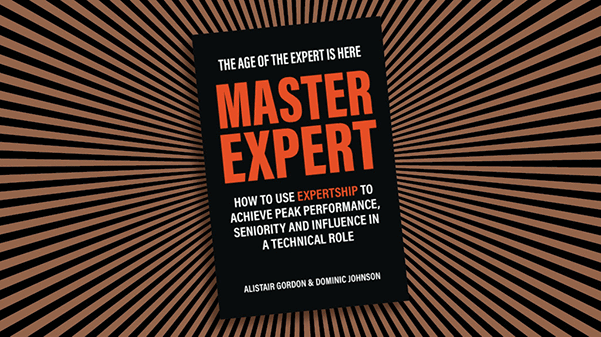
Expertship resource centre
How do you lead a team of developers, data scientists, actuaries, scientists, engineers or other technical roles when you're not an expert yourself?
Expertship Primer
How do you lead a team of developers, data scientists, actuaries, scientists, engineers or other technical roles when you're not an expert yourself?
Summary
It’s early days in a new role managing a team of scientists, or software developers, or actuaries or engineers. They do deep technical work and you’re not an expert in every domain in which your team works. Or maybe you are an expert, but this is your first management role.
Either way, there are questions you can ask yourself and your team that will maximise the effectiveness of your first few months, and set you up for long-term success.
Where should you start?
Regardless of the type of team you lead, your goal is to maximise its performance and effectiveness. Does this mean you manage an expert team in the same way as a team of generalists?
Here’s four sets of questions to help you plan your approach:
Decision making
You may see it as your role to rapidly make decisions. But with an expert team, you may often have to “take off the manager hat”, genuinely listen to, and sometimes defer to, advice from experts who are more knowledgeable than you are.
Have you defined criteria for when you plan to listen, hold off decision making for the moment, or to defer? Are you looking for signs that you are making a decision too early, preventing your team providing their best advice?
Feedback
As a team leader, you are part of commercial and strategic discussions in which your team does not participate. It’s your responsibility to provide strategic and commercial feedback to your team, and to ensure your team’s ideas are heard by customers and the organisation.
How will you keep your team up to date with changes to your organisations commercial or strategic goals? What plans do you have to pave the way for others’ ideas to reach other teams, the board or other management?
Coaching
In general, expert teams have not had a lot of coaching or guidance to show them how to:
-
Frame technical ideas to make commercial and strategic sense
-
Influence and guide stakeholders, and avoid misunderstanding and conflict
-
Align technical goals with broader business strategy
How will you coach your team to master these skills? (This is a big question, and we’ve provided some links at the end of the article.)
Retaining your most valuable experts
Experts have valuable technical and execution knowledge. Others are always trying to hire them away, and they are hard to replace. (As a CIO client of ours said, “You can always replace a manger with 20 years experience, but good luck replacing an expert who’s been with you that long.”)
How will you discreetly sound out which, if any, team members plan to leave? Are you pushing every member of your team to coach their skills to others? Do you have a succession plan to replace critical expertise if it walks out the door?
The early days
That was a lot of questions, but to give you some immediate ideas for action, here’s some suggestions for early wins.
-
The feedback your team will appreciate most? Act as a strategic and commercial sounding board for their ideas.
-
The best first step to improve long-term team effectiveness? Start with improving commercial effectiveness and influence. Coach your team to understand their market context, and why certain styles of influence often used by experts are counter-productive. (Advice for coaching here: market context and influence.)
-
The best leadership style to adopt? Do you need to make this decision, or could experts in the team make it (after consulting your commercial and strategic instincts)?
-
The best way your team can influence others? Make a list of all useful sponsor networks, funding, relevant commercial teams and customers, and other connections you think will benefit your team. Then introduce each member of your team to the members of that network you think they need.
And finally, a note about coaching:
Most material in this resource centre is drawn from our book Master Expert: How to achieve peak performance, influence and seniority in a technical role.
It’s a resource for leaders and coaches. 47 of its 50 chapters work step by step through all the skills your team need to become Master Experts. You can buy it on Amazon (or download a selection of chapters below).
In addition, we offer a one-day program that helps leaders of experts more effectively lead teams, and subscribers can join this program at a reduced cost. Learn more about Leader of Experts.




